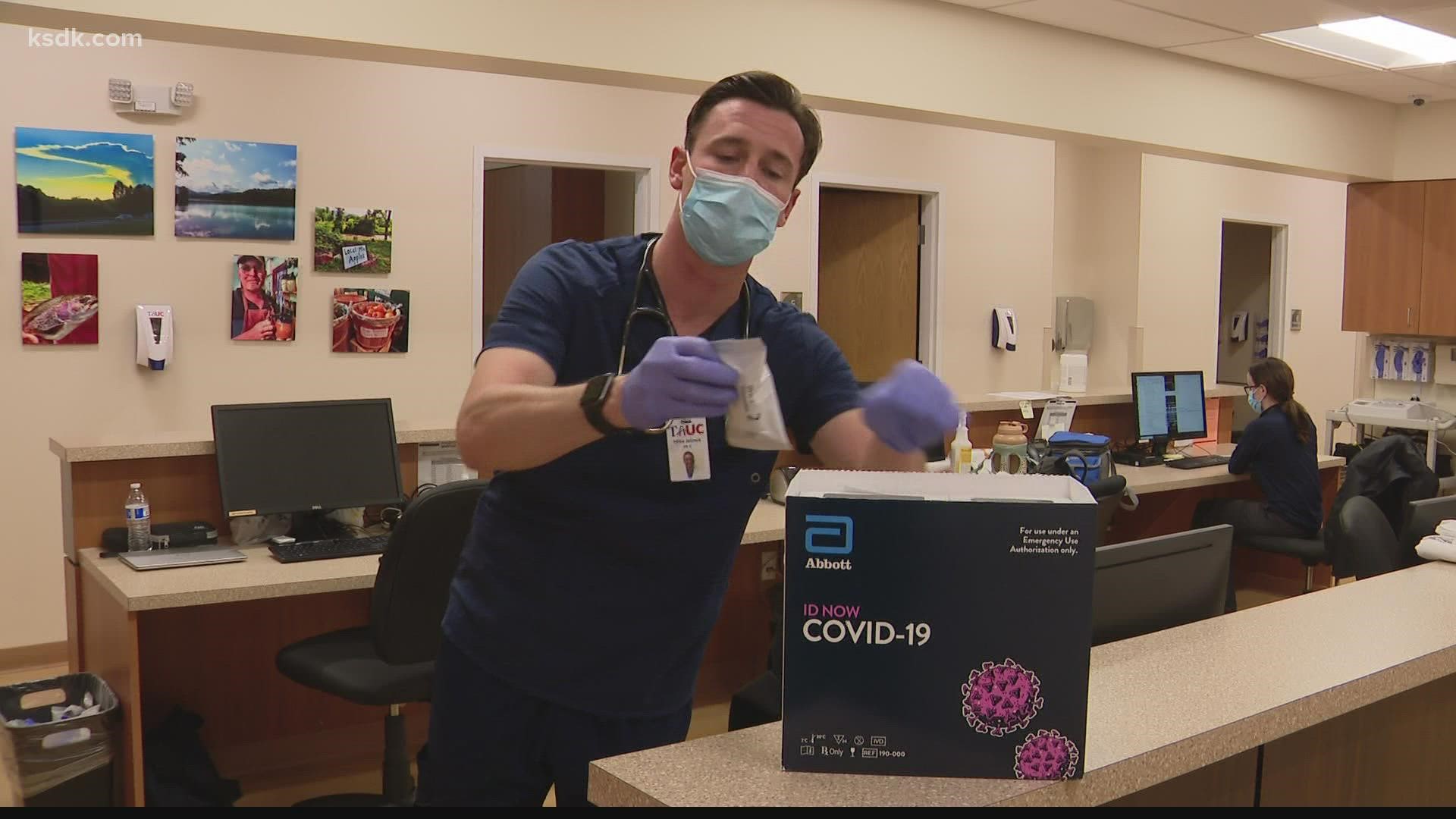O'FALLON, Mo. — Federal pandemic relief is coming to an end, so uninsured patients may have to pay out of pocket for a COVID-19 test.
The shift in coverage is happening as spring moves in, bringing on allergies and the return of vacations for many people — two reasons many people will need or want to get tested for the virus.
Total Access Urgent Care Physician Assistant Mike Jelinek reminded people that the pandemic isn't over.
"COVID cases definitely seem to be decreasing over the last several weeks. However, I think it's important for everyone to know we are still seeing positive cases, with varying degrees of illness," Jelinek said.
As warmer weather approaches, Jelinek is seeing people confuse their allergy symptoms with COVID-19.
"What I would consider to be allergy symptoms, the wet symptoms: runny nose, itchy watery eyes and sneezing. With COVID, it's more of the dry, fever, shortness of breath, body aches," Jelinek said.
Fever is a tell-tale sign of COVID-19, but getting tested is the best way to tell the difference.
"We've seen quite a few folks that came in thinking it was just allergies. We ended up doing a COVID test because their symptoms overlapped, and we've certainly had several positive cases from that standpoint," Jelinek said.
Federal pandemic relief funds are no longer available, making access to testing more costly for uninsured patients.
"On March 22nd, the federal aid for COVID testing has gone away so that has changed things for us. Insurance companies will still reimburse for COVID testing, but for patients without insurance, sometimes that results in an out-of-pocket expense," Jelinek said.
A PCR test at Total Access Urgent Care can cost up to $200.
SSM Health Chief Community Health Officer Dr. Alex Garza sent us a statement warning of the possible repercussions with the change in funding.
"The lapse of federal funds for testing, antiviral therapies and vaccinations for the uninsured will most likely lead to an exacerbation of treatment of COVID and place populations at higher risk of poor outcomes," Garza wrote.
Dr. Garza said that may lead to fewer people getting tested, which could potentially increase the spread.
"If you're feeling sick don't assume it's allergies. Come see us, get tested," Jelinek said.
Warmer weather also means you may be planning to travel if you haven't already.
Jelinek recommended getting tested before and after you travel outside of the region and especially if you're feeling symptoms.

